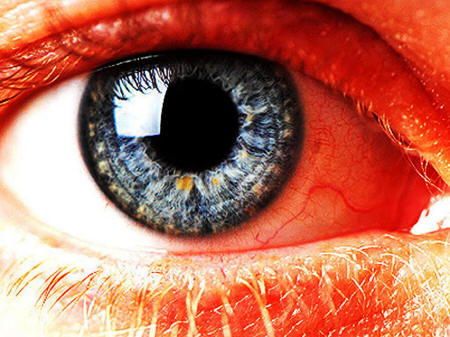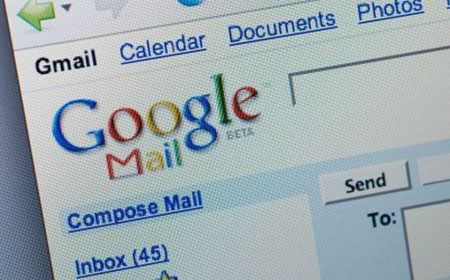
by Susanne Posel
August 5, 2014
from
OccupyCorporatism Website

The news that Google
peeked into emails from John Henry Skillern and reported to law enforcement that he allegedly was
receiving child porn has sparked conversations about whether or not tech
corporations should snoop into our private emails looking for nefarious
dealings and information about us.
Media outlets are reporting on the great service
Google provided in monitoring and catching Skillern because now,
"the rest of
us law-abiding citizens have nothing to fear".
Journalist Mark Rogowsky
explains :
"Google has been scanning Gmail since its inception more than
a decade ago, but the purposes have been very narrow: to filter out spam and
to attempt to display targeted ads alongside the mail you're reading mostly.
At some point in the more recent past, it
decided it could do more."
Microsoft's "Scroogled" Gmail
Quietly, Google has been linked up to "law
enforcement network[s]" with the goal of monitoring emails for illegal
content.
In another
media report Google's relationship with law enforcement was explained:
"Technology giant Google has developed state of the art software which
proactively scours hundreds of millions of email accounts for images of
child abuse.
The breakthrough means pedophiles around the world will no
longer be able to store and send vile images via email without the risk of
their crimes becoming known to the authorities.
Details of the software emerged after a
41-year-old convicted sex offender was arrested in Texas for possession
of child abuse images."
The article continues:
"Police in the United States revealed that
Google's sophisticated search system had identified suspect material in
an email sent by a man in Houston.
Child protection experts were automatically
tipped off and were then able to alert the police, who swooped after
requesting the user's personal information from Google."
Gmail busts child predator John Henry Skillern
...for private email photos
According to John Simpson, privacy project
director for Consumer Watchdog:
"Google has finally admitted they don't
respect privacy. People should take them at their word; if you care
about your email correspondents' privacy, don't use Gmail."
CWD
uncovered court documents that reveal Google believes their 425 million
users do not have a "reasonable expectation" to privacy with regard to
emails sent and received through their Gmail accounts.

According to the
brief filed by Google:
"Just as a sender of a letter to a business
colleague cannot be surprised that the recipient's assistant opens the
letter, people who use web-based email today cannot be surprised if their
emails are processed by the recipient's [email provider] in the course of
delivery.
Indeed, 'a person has no legitimate
expectation of privacy in information he voluntarily turns over to third
parties'."
Simpson remarked:
"Google's brief uses a
wrong-headed analogy; sending an email is like giving a letter to the Post
Office. I expect the Post Office to deliver the letter based on the address
written on the envelope. I don't expect the mail carrier to open my letter
and read it.
Similarly when I send an email, I expect it
to be delivered to the intended recipient with a Gmail account based on
the email address; why would I expect its content will be intercepted by
Google and read?"
Attorneys for Google claimed that,
"too little is asserted in the complaint
about the particular relationship between the parties, and the
particular circumstances of the [communications at issue], to lead to
the plausible conclusion that an objectively reasonable expectation of
confidentiality would have attended such a communication."
In 2013 it was revealed that while the National
Security Agency (NSA) used Google to assist them in spying on Americans, Google
used their
DoubleClick adverts so they were
able to track users while claiming that they,
"work hard to get privacy right... and have
taken steps to remove the ad cookies, which collected no personal
information, from Apple's browsers. We're pleased to have worked with
the state attorneys general to reach this agreement."
By planting cookies into user's computers,
Google was about to extract data on search engine entries over 36 states,
including the District of Columbia.
Apple's Safari was utilized as Google
circumvented default privacy settings to watch and record keyword searches
through lying to their customers.
To help out law enforcement, specifically the
New York Police Department (NYPD) Google Glass
has been used in testing applications to assist officers in finding
"bad
guys".
The anonymous source stated:
"It's in the early stages. A handful of
people are testing it out. If it works, it could be very beneficial for
a cop on patrol who walks into a building with these glasses on. It
would be like the Terminator.
You walk past somebody and you get his
pedigree info if he's wanted for a warrant right on your eye screen. You
can identify the bad guys immediately within seconds."
Another media outlet
claims to
have received information from an anonymous "ranking New York City law
enforcement official" that told them:
"We signed up, got a few pairs of the Google
glasses, and we're trying them out, seeing if they have any value in
investigations, mostly for patrol purposes. We're looking at them, you
know, seeing how they work."
CopTrax, a surveillance tech corporation,
has reported to have worked
with law enforcement on a,
"new ground-breaking in-car video system
from Stalker, in conjunction with the Byron, Ga., Police Department,
performed the first successful field trail of Google Glass by law
enforcement officials."
According to CopTrax, Operation Police Officer (OPO)
was a beta-testing trial wherein,
"actual law enforcement situations and
environments" were predisposed to participants in order "to test Glass's
compatibility with CopTrax's innovative real-time video streaming,
high-resolution video capture and cloud storage, and live GPS tracking
from any Internet-connected computer."
The OPO trial also evaluated,
"the increased situational awareness and
capture of high-quality audio and video evidence from the officer's
perspective."
The activities tested by OPO included:
-
Patrol with Radar and Laser
Each of
the officers participated in vehicle patrol using the Google Glass
device running with the CopTrax application.
-
Traffic Stop
Both officers performed
several traffic stops while using the Google Glass device running
with the CopTrax application.
-
Arrest
Officers performed one arrest
while using the Google Glass device running the CopTrax app.
-
Firing Service Weapons
Both officers
fired their service pistols and patrol rifles to check video
stability, device retention, and effects of recoil.


